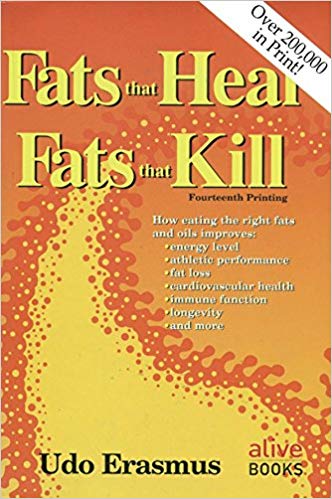By Ben Fuchs | Pharmacist Ben
Perhaps the most important chemicals in the body are a group of compounds that almost no one has heard of. They’re called prostaglandins (they were first discovered in the prostate gland) and they’re the most prominent of the hormone family known as eicosanoids. It would be impossible to overstate the significance of these diverse fat soluble biochemicals. In fact it would be no hyperbole to call prostaglandins (and eicosanoids), perhaps the most critical biological substances in all of biochemistry, human or otherwise.

By Jfdwolff, via Wikimedia Commons
Prostaglandins (PGs) are hormone like substances that affect every single biological cell system. In much the same fashion as hormones, they are involved in initiating molecular activity. However, unlike the typical so-called endocrine hormones which are made in glands and travel to various parts of the body, prostaglandins remain localized to the cellular areas they are secreted from. For this reason, they are sometime referred to as “tissue hormones”.
There are about 12 prostaglandins contained in three main classes, which are distinguished by the type of fatty acid they are derived from. Series 1 prostaglandins are anti-inflammatory and relaxing and are involved in circulatory and immune health and are derived from Omega 6 fats. Series 2 prostaglandins oppose those found in Series 1. They initiate muscle contraction and the inflammatory response and promote wound healing, blood clotting and cortisol secretion. They are derived from arachidonic acid, which is found in many animal fats. And, then there are the Series 3 prostaglandins, which have effects similar to PGs found in Series 1, are formed from Omega 3 fatty acids found in fish oil. Most nutritionists emphasize the health benefits of increasing the synthesis of prostaglandins found in series 1 and 3 while decreasing those from series 2.
Because of their wide ranging functionalities in biology, prostaglandin imbalances can be a causative factor in almost all clinical issues. This is most especially evident in the case of inflammation which is almost always a component of the disease process. Some of the more common health maladies associated with prostaglandin metabolism include fever, arthritis, immune and allergy issues, diarrhea, heart disease, headaches, fibromyalgia, endometriosis, and almost all skin problems. Keloid scarring is one of the more unpleasant cutaneous manifestations of prostaglandin imbalance. Even tumor production has a significant prostaglandin component. On the bright side, there isn’t a disease symptom that cannot be improved by addressing dysregulation of this fascinating class of fatty substances.
As the medical treatment of choice for addressing prostaglandin dysfunction, aspirin, acetaminophen and non steroidal anti-inflammatory drugs and COX-2 inhibitors have become the most widely used drugs in the world, but there are effective nutritional options. In fact, there are two powerful strategies for improving prostaglandin chemistry, both involving the fatty system of the body. First, it’s very important to be supplementing with Essential Fatty Acids (EFAs). That’s because Series 1 and 3 prostaglandins are derived directly from EFAs. There are two main classes of essential fatty acids, so called- omega 3 and omega-6. As described above, they are both required for healthy prostaglandin synthesis, and while no one really knows how much EFA you need, suffice it to say, everyone should be using a balanced supplement. Secondly, fat absorption needs to be addressed. Symptoms of fat malabsorbtion include digestive discomfort after fatty meals, bloating, gas, diarrhea and fatty stools. If any of these are present, make sure you’re taking probiotics and lecithin and digestive enzymes that have bile salts all of which can improve the uptake of EFAs.
Then there are co-factors required for effective prostaglandin dynamics. Patients confronting prostaglandin-driven inflammatory pain symptoms(and all inflammatory pain symptoms are prostaglandin-driven) may want to consider taking at least a couple of grams of Vitamin C every day as well as 400 i.u. of Vitamin E and generous amounts of the B-complex, ideally dissolved in water. The mineral magnesium may also be beneficial. Most people could benefit by taking at 1000mg of magnesium daily as the glycinate or malate salts.


 It wouldn’t hurt any of us to be using fat absorption supplements, starting off with digestive enzymes, specifically lipase, which is a generic term for a class of enzymes that dissolves fat. It’s found in pancreatin (available as a supplement) which is a group of enzymes that is made by the pancreas. These fat absorbing enzymes can improve overall health not only digestion. While they’re obviously important for the digestion of fats, they are also play in important part in the biochemistry of cell membranes and inflammation. Folks with arthritis may get tremendous benefits from pancreatin enzyme supplements as well as ordinary digestive enzymes. They can help thin the blood too.
It wouldn’t hurt any of us to be using fat absorption supplements, starting off with digestive enzymes, specifically lipase, which is a generic term for a class of enzymes that dissolves fat. It’s found in pancreatin (available as a supplement) which is a group of enzymes that is made by the pancreas. These fat absorbing enzymes can improve overall health not only digestion. While they’re obviously important for the digestion of fats, they are also play in important part in the biochemistry of cell membranes and inflammation. Folks with arthritis may get tremendous benefits from pancreatin enzyme supplements as well as ordinary digestive enzymes. They can help thin the blood too.







